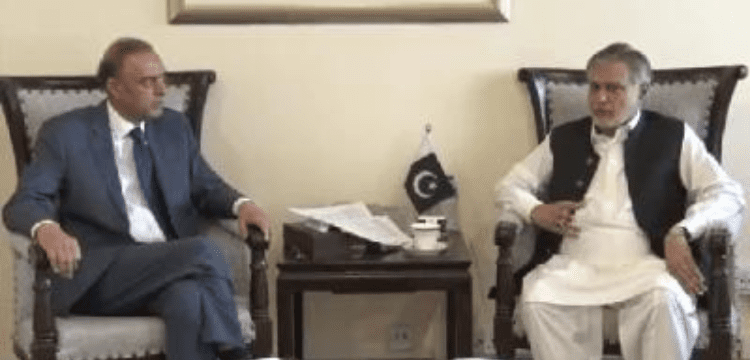[vc_row][vc_column][vc_column_text dp_text_size=”size-4″]Ishaq Dar, the finance minister, stated on Thursday that he would ask the governor of the central bank to work with a group of philanthropists in an effort to raise money from Pakistanis living abroad to help with the foreign cash shortfall.
Speaking via video link to a symposium on Islamic finance, Dar lauded Bashir Farooqi’s effort, the founder of the Saylani Welfare International Trust, under which prominent benefactors hope to raise $2 billion over the course of five years. According to Farooqi, the cash won’t result in any financial gain for the Pakistanis living abroad.
The campaign to raise money will aid in resolving the foreign exchange crunch that is delaying port officials’ clearance of imported products. The Citizens Foundation, Akhuwat Foundation, and Indus Hospital are also involved in the programme. Farooqi stated, “We will call a joint news conference soon to solicit assistance from Pakistanis living abroad.”
Dar also demanded the end of the interest-based system during his speech and announced the formation of a commission to ensure the establishment of an Islamic financial system. According to an APP article, the finance minister asserted that a bank that had 100 branches previously had increased to 1,000 branches after using Islamic banking standards.
He observed that the government had been given five years by the Federal Shariat Court to end interest-based banking in the nation and expressed confidence that, with the assistance of the private sector, it could “meet the conditions set for the conversion before the allowed period.”
Dar revealed that he had given the State Bank of Pakistan and the National Bank of Pakistan orders to rescind their appeals of the Federal Shariat Court’s decision. The nation’s foreign exchange reserves have fallen to a nine-year low of $3.7 billion, which is insufficient to pay even three weeks’ worth of imports. This has prompted the fundraising campaign.
As Pakistan battles a severe dollar shortage, banks have been explicitly instructed by the State Bank of Pakistan to refuse to open letters of credit (LCs) for the majority of imports. A significant portion of the nation’s import-dependent industrial activity has halted as a result of reducing dollar outflows. Millions of containers, including those with necessities, are stuck at the ports, according to traders, who have issued a warning.
[/vc_column_text][/vc_column][/vc_row][vc_row][vc_column][vc_column_text]
[/vc_column_text][/vc_column][/vc_row]











